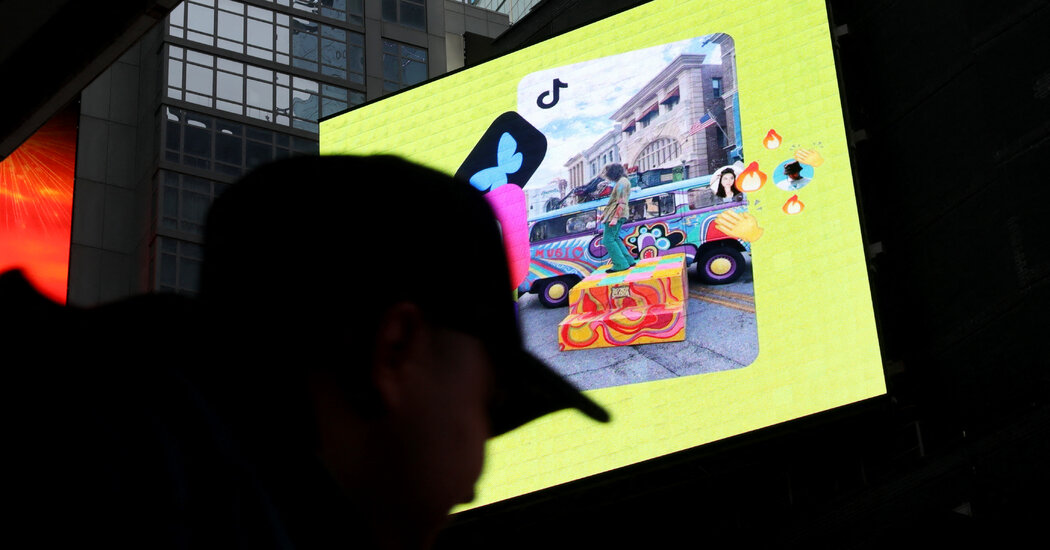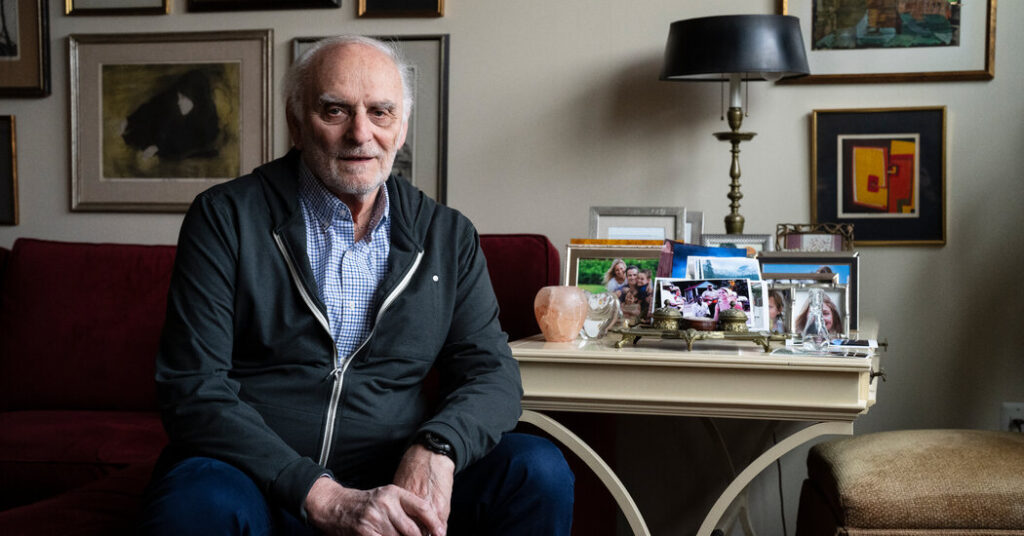“Sorry, TikTok isn’t available right now,” the message read.
Hours before a federal law banning TikTok from the United States was set to take effect on Sunday, the Chinese-owned social media app went dark, and U.S. users could no longer access videos on the platform. Instead, the app greeted them with a message that said “a law banning TikTok has been enacted.”
“We are fortunate that President Trump has indicated that he will work with us on a solution,” the message said. “Please stay tuned!”
TikTok also appeared to have been removed from Apple and Google’s U.S. app stores, some users said. In addition, TikTok’s sister app, Lemon8, stopped working and showed U.S. users a message saying that it “isn’t available right now.” Both TikTok and Lemon8 are owned by ByteDance, a Chinese internet giant.
TikTok became unavailable after the Supreme Court decision on Friday upholding the law, which calls for ByteDance to sell the app by Sunday or otherwise face a ban. The law was passed overwhelmingly by Congress last year and signed by President Biden. TikTok, which has faced national security concerns for its Chinese ties, had believed it could win its legal challenge to the law, but failed.
The blackout capped a chaotic stretch for TikTok, which had made last-minute pleas to both the Biden administration and President-elect Donald J. Trump for a way out of the law. Until Saturday night, no one — including the U.S. government — was entirely sure what would happen to it when the law took effect. The United States has never blocked an app used by tens of millions of Americans essentially overnight.
The law has a provision to penalize app store operators like Apple and Google and internet hosting companies like Oracle for distributing or maintaining the TikTok app. Under the law, those companies face penalties as high as $5,000 per user who can access the app.
TikTok, Apple and Oracle didn’t immediately respond to requests for comment. Google declined to comment.
For TikTok and ByteDance, the developments are a major blow. TikTok has roughly 170 million U.S. users, who are some of the app’s most lucrative customers. In legal filings, TikTok has said that even a temporary disappearance could kneecap it, with users and creators leaving for other platforms and never returning even if a ban was lifted.
The situation was further complicated by the law’s start date falling in the final days of Mr. Biden’s presidency. A White House spokeswoman suggested on Saturday that the Biden administration would not start fining companies on Sunday.
“We see no reason for TikTok or other companies to take actions in the next few days before the Trump administration takes office on Monday,” Karine Jean-Pierre, the White House press secretary, said in a statement. “We have laid out our position clearly and straightforwardly: actions to implement this law will fall to the next administration.”
Spokesmen for the White House and the Department of Justice did not respond to requests for comment after TikTok went offline.
Mr. Trump said on Saturday he would “most likely” find a way to give TikTok a 90-day extension once he takes office on Monday. The law gives the president the ability to extend the deadline for a sale only if there is “significant progress” toward a deal that would put TikTok in the hands of a non-Chinese owner. It was not clear how that extension might work if the ban had already taken effect.
Mr. Trump has also indicated he could sign an executive order to circumvent the ban of the app. TikTok’s chief executive, Shou Chew, is expected to attend Mr. Trump’s inauguration on Monday.
On Saturday, the mood on TikTok was somber. Alix Earle, a content creator with 7.2 million followers who rose to fame on the app in 2022, posted tearful videos mourning the platform.
“I feel like I’m going Through heartbreak,” Ms. Earle wrote in one video. “This platform is more than an app or a job to me. I have so many Memories on here. I have posted every day for the past 6 years of my life. I’ve shared my friends, family, relationships, personal struggles, secrets.”
Other users spent their final moments on the app recreating viral dances. The “For You” page filled with montages of users’ favorite trends and songs, many dating back to the early days of the pandemic, when the app soared in popularity.
By 9 p.m. Eastern on Saturday night, TikTok was showing U.S. users a pop up message that said the app would soon stop working.
It said the law would “force us to make our services temporarily unavailable.” Shortly thereafter, TikTok went dark.
Late Saturday evening, Ms. Earle found solace by appearing on a rival social media platform: Instagram.
“I was just not expecting that for this Saturday night,” she said of what happened to TikTok as she livestreamed on Instagram. RedNote, a Chinese video app that has become popular in recent days, would not become a long-term substitute, she said.
“We’re just gonna have to make it a little more fun on here, that’s what I’m thinking,” she said of Instagram.
On Sunday morning in China, TikTok’s notification to U.S. users that it would suspend service was a trending topic on Weibo, a popular social media platform similar to X.
“This is a dark moment in the development of the internet,” Hu Xijin, a former editor in chief of the state-run Global Times, wrote on Weibo. The United States had set an example for “the entire Western world” to silence voices online in the name of national security, he wrote.
Diao Daming, a professor of international relations at Renmin University of China, called TikTok “the first big test that Trump 2.0 has to face.” Mr. Trump’s actions on TikTok could test his relationship with “China hawks” in Washington, Mr. Diao wrote in a commentary published on state media.
Claire Fu contributed reporting from Seoul. Nico Grant and Tripp Mickle contributed reporting from San Francisco. David McCabe contributed reporting from Washington.





